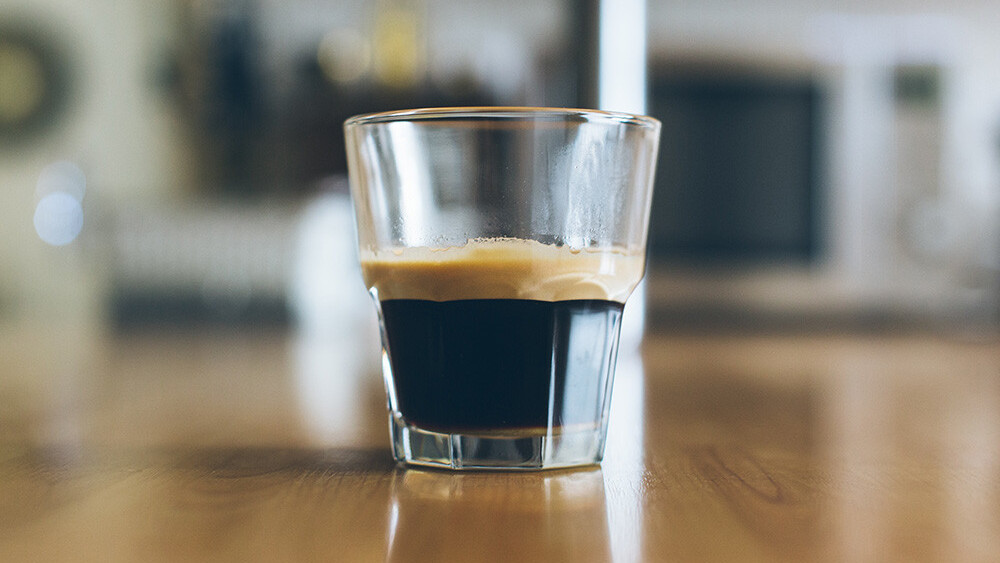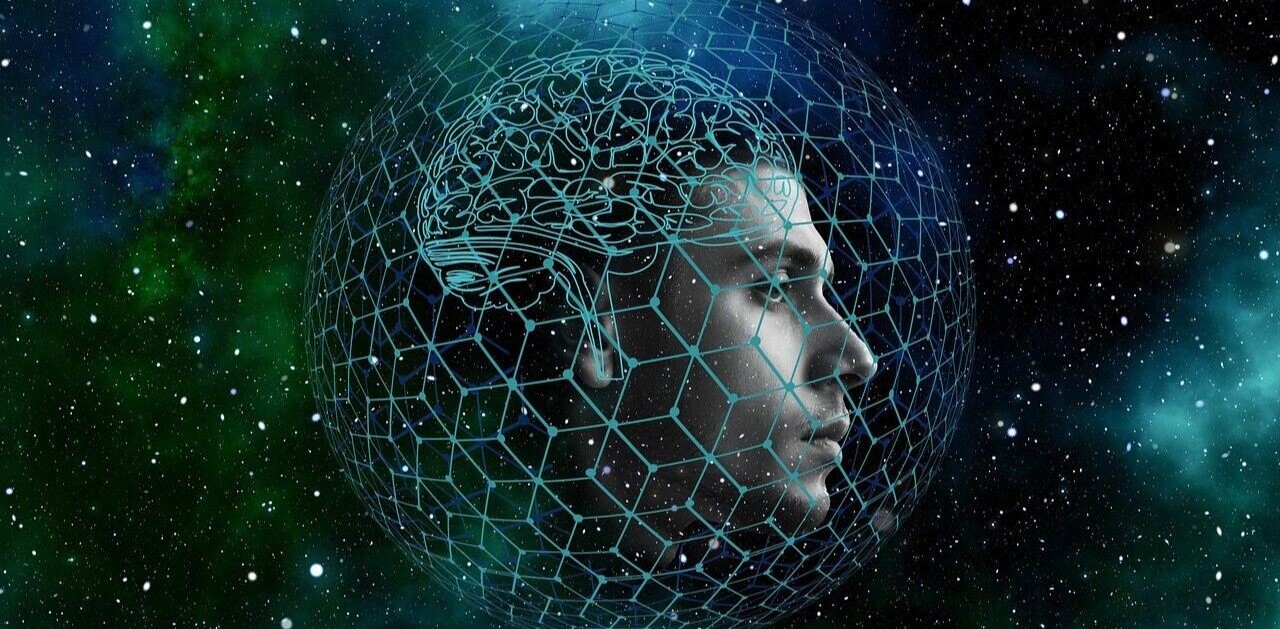
Caffeine. It’s one of the most addictive drugs in the world.
It runs through our bodies on a regular basis, either through coffee or tea, and it has become an embedded morning habit for many of us!
An average person in the United States consumes approximately 300mg per day, which is equivalent to three to four cups of coffee, and over 90 percent of the world’s population ingests some form of caffeine.
To give you an idea of how caffeine levels of coffee compared to other substances:

Caffeine has become so popular, that today there are energy drinks, gum, beef jerky, and other unimaginable products in stores that promises shoppers the boost the need to get through their day.

So let’s uncover how our brain works on caffeine.
There have been many studies and research papers that have gone back and forth that support the benefits and negative impacts of consuming caffeine on a regular basis. With all this information thrown at us, it’s easy to feel overwhelmed and confused.
Before we dig deeper into how our brain works on caffeine, let’s first understand how caffeine works.
How caffeine works
Caffeine in simple terms is a compound that is found in over 60 different plants around the world including cacao pods, tea leaves, and kola nuts.

What is particularly interesting about caffeine is that chemical relatives of caffeine exists all around our bodies.
Every moment that you’re awake, the neurons in your brain are firing away. As those neurons fire, they produce adenosine as a byproduct, and your nervous system is actively monitoring adenosine levels through receptors.
We often get tired at the end of the day because adenosine levels reach a certain point in our brain and spain cords, especially when we’re learning something new. Given the similarities of size and shape of the caffeine molecule and adenosine molecule, your body accepts it as an equal replacement, as it heads right for the adenosine receptors in your system.

With those receptors replaced and blocked, the brain’s own stimulants, dopamine and glutamate, can do their work more freely without distraction, giving you more stimulated energy.
While the extra energy is great for those of us who need a bost, it’s not all good for our brains.
*Disclaimer: Every side effect (good or bad) mentioned here will vary from person to person, and we recommend you use the following as a guideline to making better decisions.
Common downsides of coffee
1. Trouble sleeping
We’ve all had nights where we roll side to side of our beds because we just couldn’t fall asleep. While it’s perfectly fine to have our dose of caffeine in the morning, we should be cautious of consuming it in the later parts of the day, especially if you’re sensitive to caffeine or an early sleeper.
So until when is it safe to drink caffeine that will have little to no affect on your sleep quality?
According to the Journal of Clinical Sleep Medicine, six hours before sleep is the recommended deadline to follow of when you should stop consuming more caffeine.
2. Energy crashes
Unless you are drinking coffee or taking a caffeine stimulant on a regular basis, it’s common to experience a crash in our bodies after the energy boost wears off. That’s because caffeine initially stimulates your body to produce more adrenaline and dopamine than usual, two substances in your body that contribute to energy and positive mood; when these chemicals begin to drop again, you can experience fading energy and a drop in mood.
A strategy that has been proven by researchers is to drink their coffee in strategic times, such as a caffeine nap.
Here’s what Wired has to say about caffeine naps, its effects and how to use it to your advantage:
Experiments performed at Loughborough University in the UK showed that the sleep-deprived need only a cup of coffee and 15 minutes of shut-eye to feel amazingly refreshed.
1. Right before you crash, down a cup of java. The caffeine has to travel through your gastro-intestinal tract, giving you time to nap before it kicks in.
2. Close your eyes and relax. Even if you only doze, you’ll get what’s known as effective microsleep, or momentary lapses of wakefulness.
3. Limit your nap to 15 minutes. A half hour can lead to sleep inertia, or the spinning down of the brain’s prefrontal cortex, which handles functions like judgment. This gray matter can take 30 minutes to reboot.
3. Heart burn or upset stomach
The majority of our bodies are contained by water. We need it to feel energized, be healthy, and simply survive. Caffeine however, triggers our bodies to remove water from our bodies, making us feel dehydrated.
It also raises the amount of acid in our stomach, causing heartburn or upset stomach.
While these are the common downsides of caffeine, here’s an infographic displaying some of the other possible symptoms.

Now that we’re done with the pessimistic side of caffeine, let’s talk about the beauty that caffeine can bring us.
Positive effects of coffee
1. Burn fat
The great thing about coffee is its low calorie intake. A regular black coffee will contain only two calories (without the sugar and cream).
In fact, several studies show that caffeine can boost the metabolic rate by three to 11 percent, which is why almost any weight loss product you’ll see on the store shelves will contain some levels of caffeine inside.
Keep in mind that this powerful effect will not be sustained for long-term coffee drinkers.
2. Nutrients for your body
Unless you’re drinking instant coffee, the coffee beans to make the coffee contain nutrients that are recommended for our daily intake.
A single cup of coffee contains (21):
- Riboflavin (Vitamin B2): 11 percent of the RDA.
- Pantothenic Acid (Vitamin B5): six percent of the RDA.
- Manganese and Potassium: three percent of the RDA.
- Magnesium and Niacin (B3): two percent of the RDA.
Coffee also contains one of the highest sources of antioxidants for our bodies.
Americans get more of their antioxidants from coffee than any other dietary source. Nothing else comes close. – Joe Vinson, Ph.D
3. Reduce risk of diseases
From diabetes, dementia, Parkinson, to Alzheimer’s disease, coffee drinkers have a much lower risk of having these diseases in the future.
Several studies show that coffee drinkers have:
- up to a 65 percent lower risk of getting Alzheimer’s disease
- a much lower risk of developing Parkinson’s disease, with a reduction in risk ranging from 32 to 60 percent
- a 23 to 50 percent lower risk of getting diabetes
- up to a 40 percent lower risk of liver cancer
- a 15 percent lower risk of colorectal cancer (those who drank four to five cups/day)

Alternatives to coffee to boost your energy
If you’re re-thinking your daily dose of coffee intake, then we have some alternatives to share that may spark some inspiration.
1. Drink it strategically
Cutting off coffee completely may seem ludicrous for many of us, so why not use it strategically?
For many of us drinking several cups of coffee per day, the effects wear off as our bodies build up a higher tolerance for caffeine.
Try drinking coffee in strategic schedules, such as:
- One day of coffee, one day of tea (or other energy boosters)
- Coffee during the week and no caffeine during the weekend
Once you’re comfortable with these cycles, try stretching your limits to:
- One day of coffee, two days of no coffee
- Coffee from Monday to Thursday, no caffeine from Friday to Sunday
Taking these strategic breaks will allow your body restorate, while giving you a higher boost the next time you drink coffee again.
2. Try bulletproof coffee
Bulletproof coffee was introduced by Dave Asprey, who claims that adding butter (or other fats such as coconut oil) will increase your metabolism and slow down the caffeine buzz, allowing you to sustain your energy throughout the day.
As crazy as this sounds, Asprey has science-backed research, and testimonials that claim this method of drinking coffee is healthier, while giving you a greater lasting sense of energy.
We recommend doing your full research before trying this out.
3. Go cold
Instead of hot coffee, why not try cold?
Cold-brewed coffee produces less caffeine and it also contains less acid that is harmful for your body.
Cold brews are great alternatives to coffee for late-night hot coffee drinkers that normally have trouble sleeping.
Hot water also cooks as it extracts, forcing chemical reactions that transform some of the extracted substances into other things, and driving some aroma substances out of the liquid. Cold water, in contrast, extracts more slowly and selectively, produces a simpler extract, and doesn’t change the original flavor substances as much. – Harold McGee, Food Scientist

While there are many ways of preparing your cold-brew coffee (or tea), here are great instructions to follow if you’re new to the process.

4. Other healthy alternatives to coffee
While caffeine is the shortcut to instant energy, there are healthier alternatives that will give you the same type of boost you need.
Consider:
- A snack high in protein and fiber (like protein bars, almond, greek yogurt or granola bars)
- Protein shake
- Lemon water
- Green tea (while this contains caffeine, it also contains the amino acid L-theanine, which encourages a calm, relaxed mindset that is conducive to sleep.)
So what can we conclude from this?
There are supporting and unsupporting evidence of caffeine, and it’s fair to say that researchers has yet to find many more treasures of how caffeine effects our bodies.
As long as we can find the right timing of drinking coffee, and how our brain works on coffee, it’s more than possible to use the positive benefits of coffee to live a healthier, more happier life.
The best decisions are made from understanding the perspectives of both sides, and our goal for this article was just that. Now that you have the knowledge, tools, and alternatives to coffee that can help you achieve the same result, it’s up to you to make the final decision.
➤ This post originally appeared on Rype
Read next: Starbucks is now serving Spotify music recommendations with your coffee
Get the TNW newsletter
Get the most important tech news in your inbox each week.





